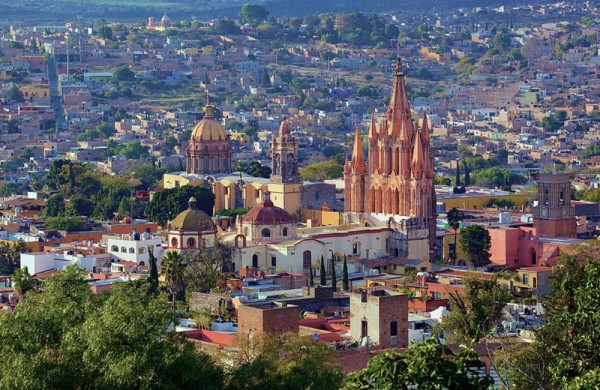San Miguel advances in tourism, but gentrification displaces locals to poverty belts
“Although it manifests itself as a place with a lot of wealth, about 67% of the local population lives below the poverty line,” said the Director of the El Charco del Ingenio botanical garden.
San Miguel de Allende, like many other destinations, experienced a tourism crisis during the Covid-19 pandemic and health emergency that led practically everyone to confinement, and revived this bad streak for three months, in the summer of last year.
However, they managed to close 2023 with an economic spill of 7 billion pesos and 2024 has started strongly in this sector with reservations, “which shows that they are looking back to see the Heritage City,” said Tania Castro, director of Economic Development.
“Gentrification, another key factor in this city of Guanajuato, rather than bringing negative effects to the people of San Miguel, has been an essential part of its development, since between the 80s and 90s there arrived “civil associations, people with a lot of money, with very good intentions who helped the communities, founded schools and associations that still function, to mention the library, there are many people who received scholarships from them,” explained Jesús Barrios, general director of the RESMA real estate agency.
While the director of the botanical garden “El Charco del Ingenio”, Mario Hernández, believes that this phenomenon of gentrification has led to the dispossession of the common elements of the local population, “there is a tendency to privatize public spaces, to serve or be attractive to a sector of a certain economic capacity that can assume and enjoy these collective goods and the local population that previously lived there, are now alien,” this, he said, causes the population to be displaced to the poverty belts. Here people can coexist, but not live together, he said, because there are people who are excessively rich or excessively poor.
Because rent in San Miguel de Allende can go from 4,500 pesos, in the areas far from the municipal capital, because if you want to live near the center, you have to pay between 25,000 and 55,000 pesos a month.
San Miguel Times
Newsroom

